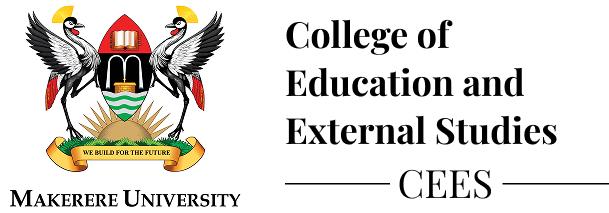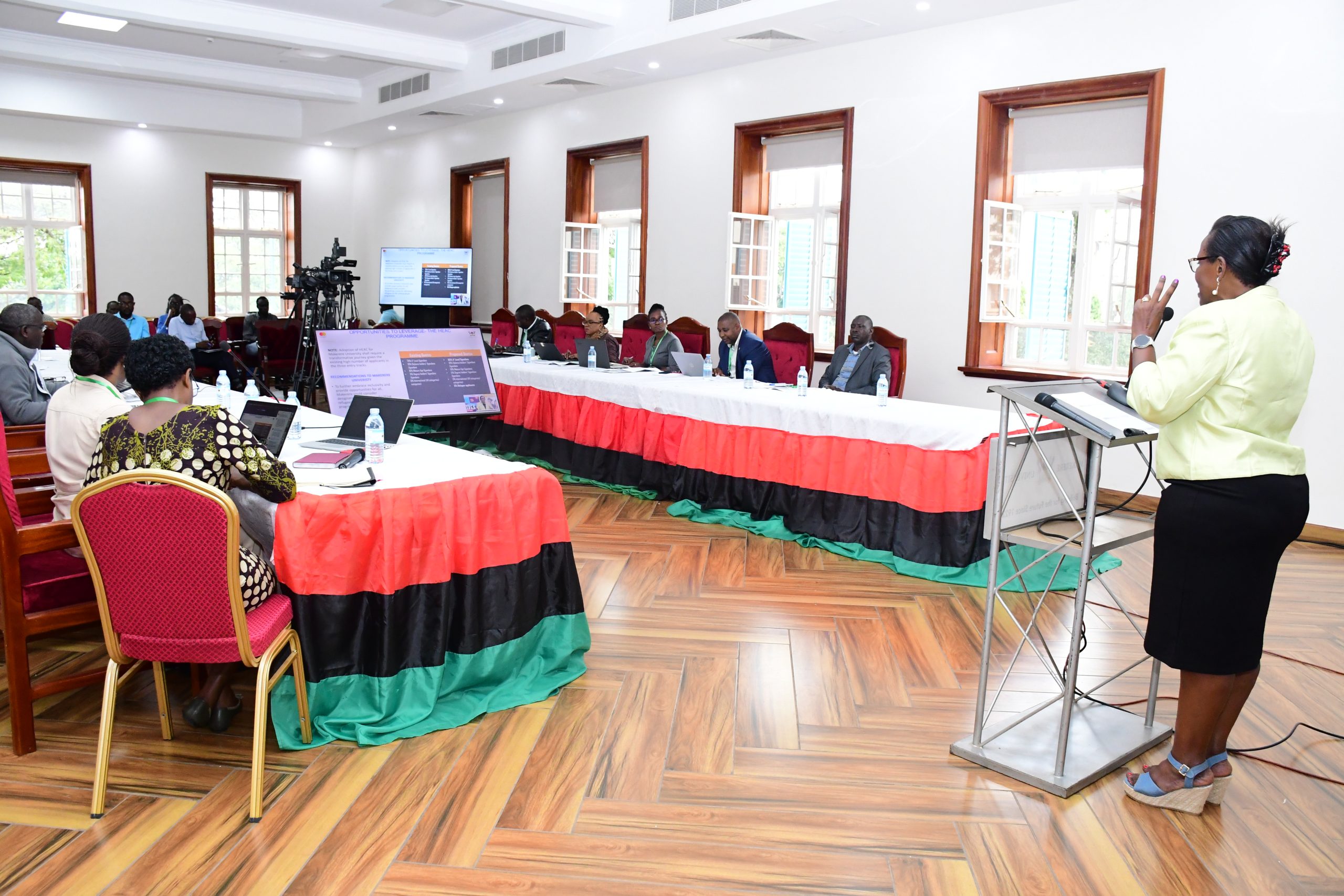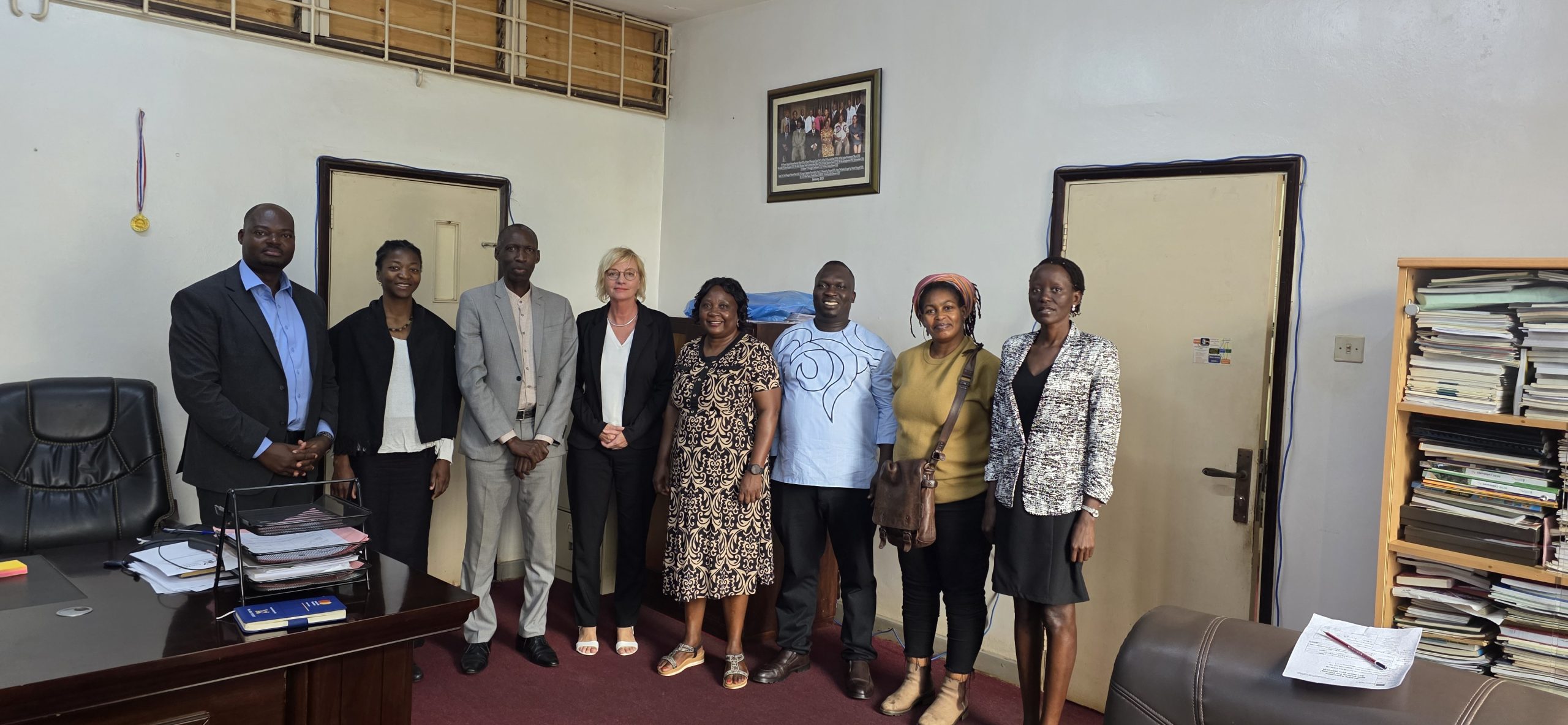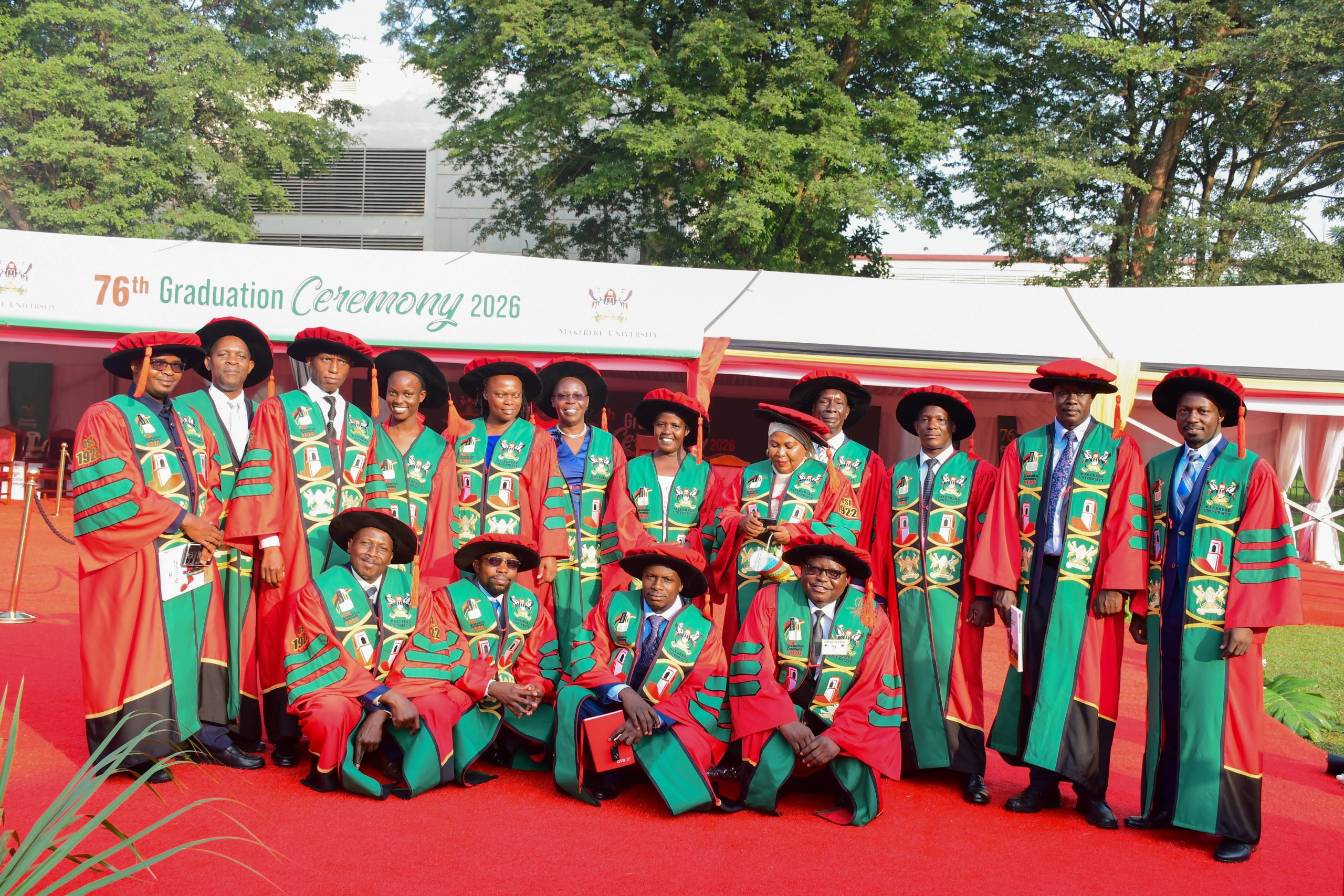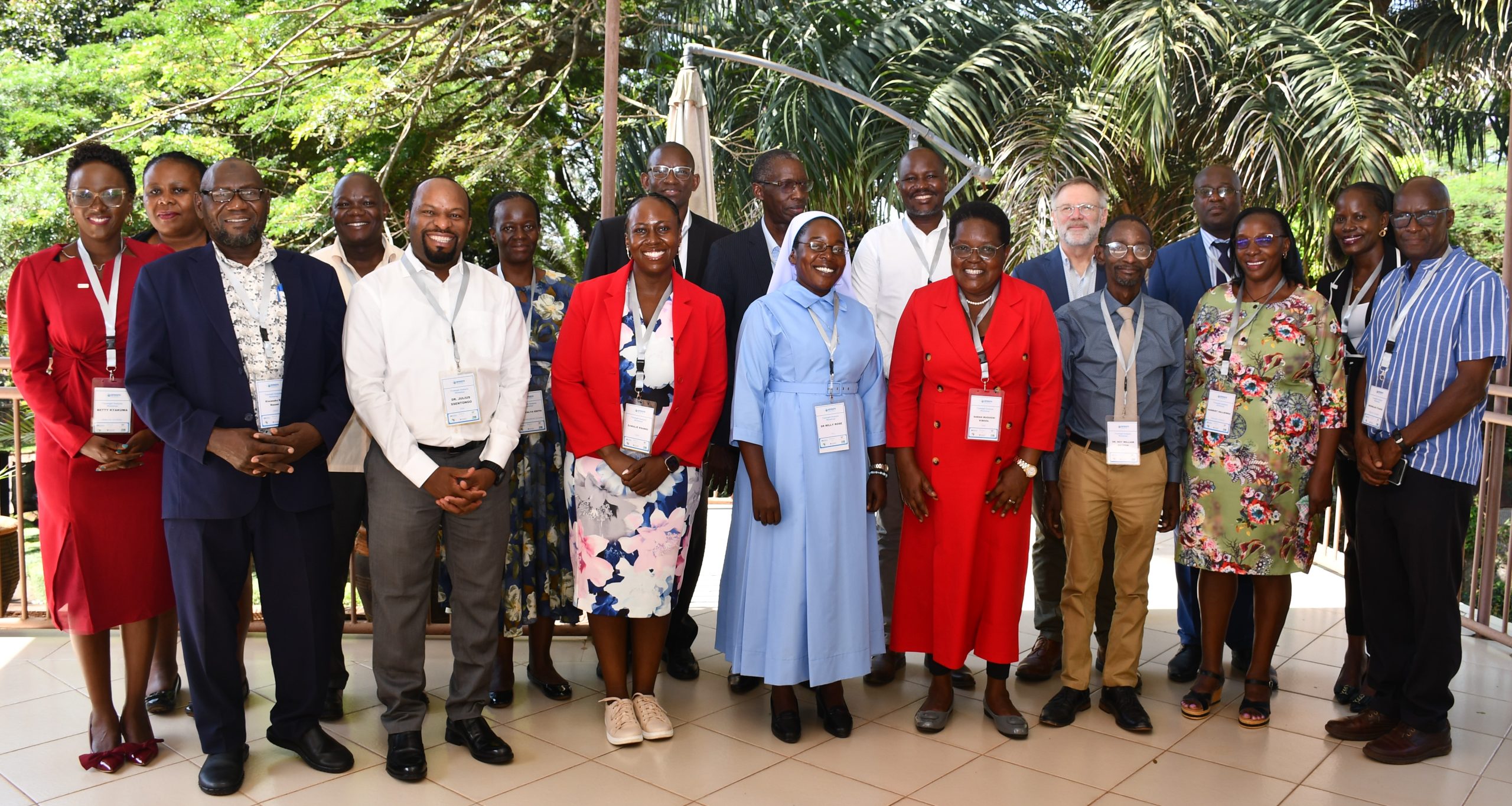Envisioning the future of refugee access to education, stakeholders and participants advocated for uniform perspectives on the Higher Education Access Certificate (HEAC) across institutions, citizen education to facilitate refugee access and meaningful participation, and development of policies that prioritize digital inclusion.
This consensus emerged on the second day (27th March 2025) as they continued to discuss the policy, practice and accreditation: towards connected refugee education HEAC models organized by Makerere University in partnership with the University of Edinburgh, Refugee Law Project and the Royal University of Edinburgh.
Held at Makerere University Main Building, the discussion brought on board the academia, administrators, the public sector, the civil society, students and graduates (alumni with a refugee status) to share experiences from an informed point of view.
Some of the key stakeholders who participated in the discussion included Uganda Examinations Board (UNEB), Ministry of Education and Sports (MoES), National Council for Higher Education (NCHE), United Nations High Commissioner for Refugees (UNHCR), Forum for African Women Educationalists (FAWE), the Mastercard Foundation Scholars Program and among others.
The approach involved listening to presentations that detailed a hands-on-experiences in managing refugees, highlighting the barriers and challenges to accessing education, and sharing strategies or workable solutions.
From the presentations and panels, participants realized that community education is vital for enhancing access, especially in light of Uganda’s progressive national policies on refugee education. They recommended for the development of holistic approaches that leverage technology and safety concerns aimed at building an inclusive education environment for refugees.
The participants stated that although digital education propels access to education institutions, it should be approached with caution, to maintain the quality of education, and to address the challenges of digital divide among students with refugee status.
The second day consisted of three panels and a plenary session. The first panel titled, Refugee Student Experiences on Access, Participation and Transition to and through Universities, featured Mambo Toaha, Ghai Emmanuel Jool and Anyieth Phillip Ayuen.
The second panel titled, Presenting the insights on ‘University Administrators’ of Supporting Refugee Students’ Access, Participation and Transition to and through the University, consisted of Dr. Justine Namaalwa, the Program Director of the Mastercard Foundation Scholars Program at Makerere University, and Mr. John William Otim, Senior Assistant Academic Registrar at Nkumba University.
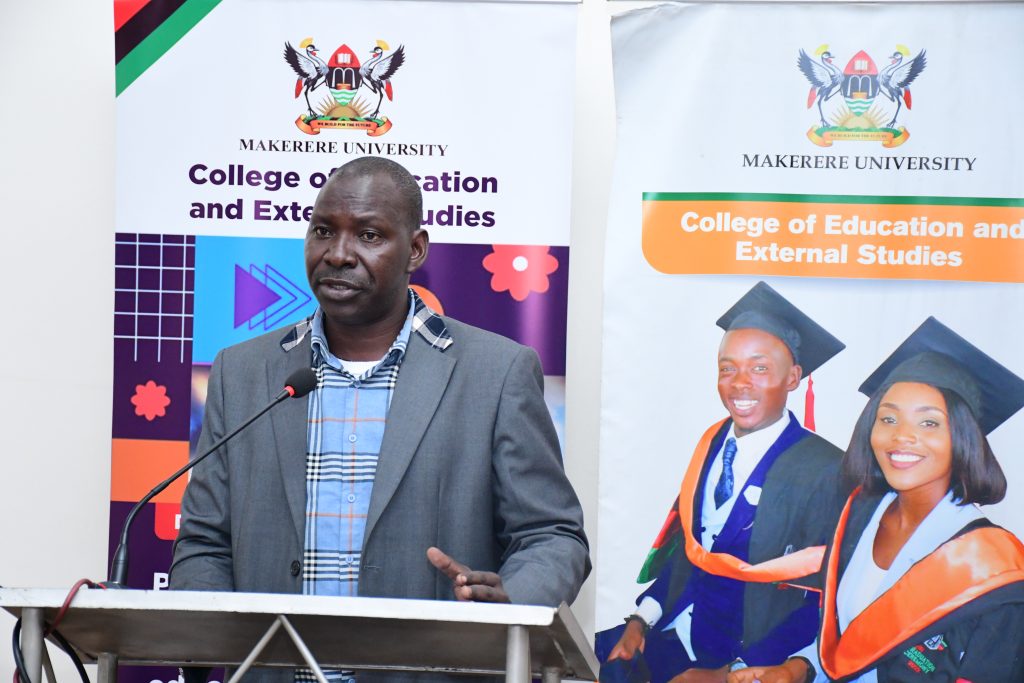
The panel discussion on Non-University Actors and their role in connected Refugee Education, involved Calvin Okello, Education Coordinator at the Forum for African Women Educationalists (FAWE) and Bethan Williams from Kiron Open Higher Education.
The plenary session plenary session on Possibilities for connected Learning programmes to inform HEAC development in Uganda: Mapping, Upscaling and Institutionalising promising Processes and Practice through Digital Education, chaired byDr. Michael Gallagher included Dr. Rovincer Najjuma, Dr. Rebecca Nambi and Ms. Sandra Nanyunjaas panelists.
Refugee Student Experiences on Access, Participation and Transition to and through Universities
Sharing his touching experience, Mambo Toaha, an alumnus of Nkumba University said: “It has not been easy to get to where I am today. After completing my primary education, I faced seven (7) long years away from school due to various challenges.”
His turning point was in 2017 at the Refugee settlement when he learned about scholarship opportunities through Windle International. “I felt a flicker of hope when I heard about the opportunity. I applied and received a scholarship. I joined Nkumba University on 18th May,” he recalled.
Convinced that many refugees do not receive information about such opportunities, Mambo appealed for a holistic community awareness approach, to enhance information flow to refugees and refugee settlements, and increase access to higher education.
Discussing the role of technology in his education journey, Mambo said: “Technology has been pivotal in my education. Without technology, conducting research and accessing learning resources would be difficult. Digital materials including e-books and online resources have become essential. Technology facilitates communication through email and platforms such as zoom.”
He added: “Even when physical classes were suspended during COVID-19, technology ensured that learning continued seamlessly. Technology enabled me to organize my tasks effectively, significantly enhancing my academic life.”
Discussing the success factors that enabled him to navigate university education, Mambo credited the clear communication channels between students and the scholarship department coupled with an inclusive campus culture that allowed him to appreciate diverse backgrounds.
“I developed a passion for my studies and I actively participated in campus activities. This self-motivation enabled me to take on leadership roles, such as serving as the General Secretary and later the Deputy President of the student association. Each step instilled confidence in me and reinforced my commitment to embrace and contribute to the community,” he shared.
Ghai Emmanuel Jool, a Masters Student at the Hochschule Bonn-rhein-sieg University of Applied Sciences in Germany shared that although his journey has been filled with challenges, persistence and motivation from friends were pivotal factors to reaching his goals.
Ghai mentioned that cultural constraints created barriers to his education. “After a challenging first year, I applied to various institutions. However, on the release of the admission list, my name was missing. I was devastated,” he recalled.
Underscoring the value of mentorship, Ghai disclosed that with the support of his mentor, he appealed the decision and was admitted to study Optometry.
Ghai revealed that he almost failed to complete his studies due to financial challenges. “My scholarship application was unsuccessful. I did not have funds to cover my exams. I had to make the tough decision of either dropping out or re-applying. This was daunting after my initial struggles to gain admission.”
Ghai reported that he used his smart phone to aggressively apply for any scholarship that he could find online. “Eventually, I secured a spot in a Bachelor of science in Clinical Psychology, followed by an opportunity to study in Germany,” he remarked.
Anyieth Phillip Ayuen, a Masters Student at Columbia University in the New York City, USA started his education journey in South Sudan and came to Uganda, where he transitioned through various schools. Ayuen disclosed that refugees face diverse challenges, including poverty, limited access to technology and lack of information about available resources.
Ayuen urged stakeholders to enhance the digital literacy of refugees. “Many refugees lack basic tools such as smart phones that would provide the connectivity needed for educational advancement. Many don’t even know how to utilize these devices effectively. It is crucial to enhance digital literacy, empowering them to recognize that their phones can be used to access online courses,” he suggested.
On making a positive difference in the lives of refugees, Ayuen reported that he trained 60 refugees, matching them with mentors and informing them about scholarship opportunities.
Presenting the insights of ‘University Administrators’ supporting Refugee students’ Access, Participation and Transition to and through the University:
“Makerere University is not yet ready for HEAC. Adoption of HEAC for Makerere University shall require a transformative journey given the existing high number of applicants in the three entry tracks,” explained Dr. Namaalwa, a member of the teaching staff at the institution.

She elaborated that Makerere University should embrace inclusivity and provide opportunities for all, through designating a quota for admitting students with refugee status on the undergraduate programmes.
She called upon the participants and stakeholders to advocate for the recruitment of a Counsellor with a refugee status at the University, and a slot for a Guild Minister representing students with refugee status.
Sharing the experiences of handling prospective students with a refugee status, Dr. Justine Namaalwa accompanied by Ms Jolly Okumu-the Operations Lead and Mr. Robert Egwalu-Scholarship Recruitment Officer at the Mastercard Foundation Scholars program at Makerere University called upon participants and stakeholders to adapt to the values of inclusivity.
She explained that inclusivity involves teaching staff and administrators treating students with refugee status with empathy and being sensitive to their needs.
Dr. Namaalwa urged participants and stakeholders to use terms and words that are inclusive when referring to refugees. Citing her interaction with refugees, she observed that most of them feel discriminated against based on the terms, words and statements that are used when referring to them.
“One individual stated, ‘I am not a refugee; I am a person with a refugee status.’ This distinction is vital, reflecting that being a refugee is a transient situation. Another individual said, ‘I am not a number,’ emphasizing the need to recognize individuals rather than labels assigned to refugees by their circumstances.
She called upon participants and stakeholders to consider usage of the term students with a refugee status or People with refugee status.
On the issue of enabling access to education, the Program Director highlighted that for the academic year starting in August 2025, 200 scholarship slots will be available, with 25% of these slots allocated to young people with refugee status.
On the choice of academic programmes, Dr. Namaalwa disclosed that when they observed that a significant number of prospective students with refugee status were applying for education and social sciences courses, the Mastercard Foundation Scholars program undertook a deliberate sensitization program to inform them that they were free to apply to academic programs of their choice at Makerere University.
Dr. Namaalwa reported that students with a refugee status face substantial barriers, particularly regarding admission qualifications. She observed that Makerere University is highly competitive, and yet many refugees, come from schools in refugee settlements, which is quite challenging for them to meet the admission criteria.
“We offer adjustments to the application process for students with refugee status, raising the age limit to 32 years, allowing them ten extra years to qualify. Academic equivalence remains a challenge; many students lack guidance on how their previous qualifications align with Ugandan standards. There is stigma surrounding online applications for academic equivalence,” she added.
On fees being a significant barrier, Dr. Namaalwa shared that a prospective student with a refugee question posed a pertinent question. ‘If I can’t afford two meals a day, how can I pay for an application?”
Dr. Namaalwa said: “Supporting students with refugee status entails providing comprehensive scholarships that cover tuition, living expenses, and essential resources including laptops. We realize that education can be a game changer for anyone, including students with a refugee status.”
Discussing the issue of academic performance, Dr. Namaalwa observed that limitations in English proficiency affects the performance of students with a refugee status. She revealed that instruction often does not account for varying degrees of language mastery among students from diverse backgrounds. Additionally, students often feel isolated, leading to disengagement in class.
To combat these challenges, she stressed that, the Mastercard Foundation Scholars Program at Makerere University initiated physical outreach programs in refugee settlements, to assist students with the online scholarship application process. This initiative acknowledges the digital divide and seeks to empower young people to access education and realize their potential.
EmphasizingUganda’s status as one of the largest hosts of refugees globally, Mr. John William Otim, Senior Assistant Academic Registrar at Nkumba University, reiterated the urgent need to support refugee students in Uganda. He noted that many young refugees desire to continue their education, however, they face numerous challenges. He highlighted the importance of exploring best practices across Ugandan universities to facilitate access and institutional support.
Mr. Otim pointed out that barriers such as the language of instruction, administrative hurdles, immigration issues, and financial constraints significantly hinder refugee students. He rooted for increased marketing and awareness-raising efforts to ensure that refugee students receive adequate information on education opportunities.
He recounted a personal experience involving a refugee student who had difficulty navigating Uganda’s educational system due academic documentation challenges and inadequate support. “Language barriers lead to significant disengagement, as many students struggle to adapt to English as the medium of instruction,” he elaborated.
Mr. Otim called for flexible admission policies and partnerships with NGOs to create inclusive educational environments. He proposed offering language training to help refugee students meet academic expectations. “National policies should adapt to support the unique needs of refugee students,” he urged. “By cultivating a culture of inclusivity and support, we can enhance the educational outcomes for all students, including those with refugee status.”
In a call to action, Mr. Otim sought for continuous collaboration among educational institutions, the government, and NGOs to ensure that refugee students receive the necessary support to thrive academically and socially.
Non-University Actors and their role in connected Refugee Education:
Mr. Calvin Okello, Education Coordinator at FAWE articulated that they are undertaking several strategies aimed at supporting more refugees and internally displaced students in accessing quality education.
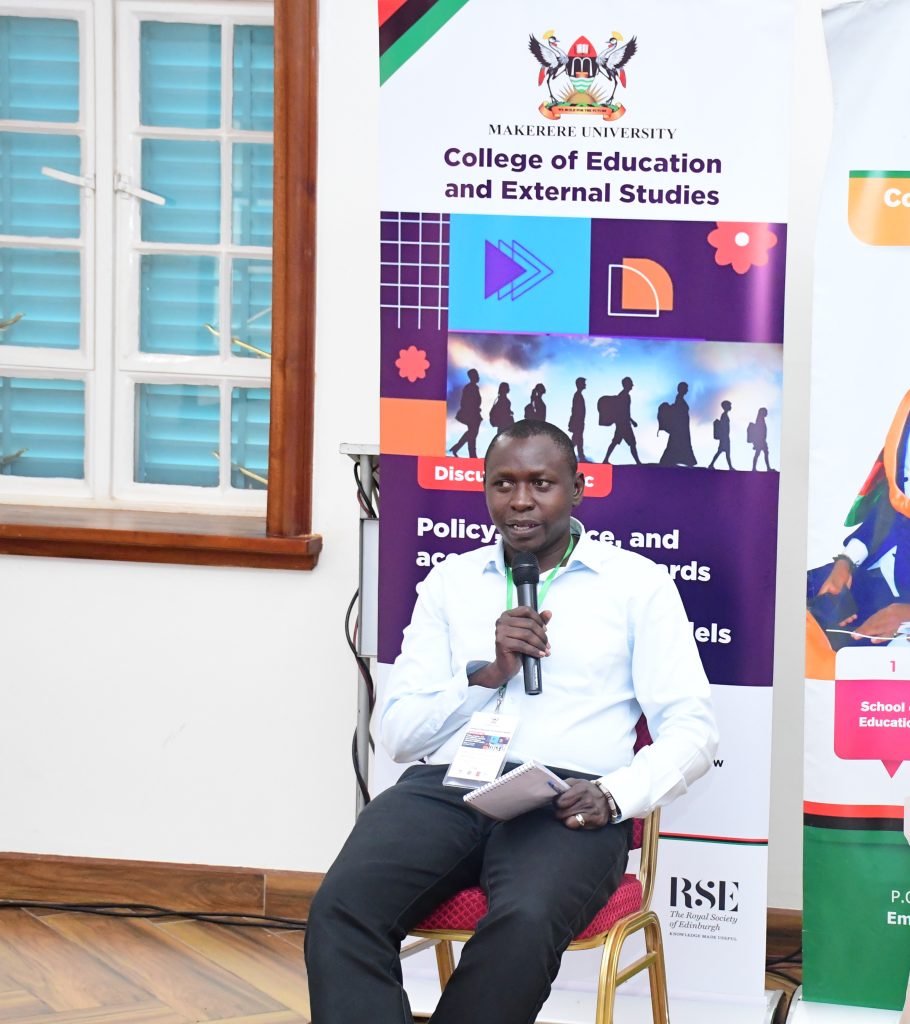
Mr. Okello pointed out that one of their key initiatives is the promotion of second-chance education for vulnerable and marginalized girls and young women. In partnership with the Mastercard Foundation, Mr. Okello mentioned that, from 2016 to 2024, they have supported 300 disadvantaged youth, 70% female and 30% male, across 13 districts in Uganda.
“Our program led to 308 students successfully completing their studies, with 278 graduates now in the workforce. We launched the Higher Education Access Certificate (HEAC) program, a fourth entry route to university designed specifically to help students who face barriers due to lower admission scores,” he stated.
“The curriculum caters for those with one principal pass. It is approved nationally, enabling us to expand the access of marginalized youth, including students with refugee status and those with disabilities,” he added.
He highlighted that, in the upcoming academic year, they aim to recruit 700 students, ensuring 10% are those with refugee status and 5% are people living with disabilities.
Mr. Okello reported that, FAWE collaborates with 14 universities and various organizations, including the UNHCR, to address barriers such as stigma, academic equivalence, and the digital divide.
Bethan Williams from Kiron Open Higher Education stated that they facilitate meaningful participation in education, equipping individuals with the skills and networks essential for leading fulfilling lives in host countries.
“Our programs target gender parity, addressing the disparities in STEM education, where we have successfully trained 400 women. This year, we plan to bring our model to Uganda, aiming to support urban refugees facing language and digital skills barriers, and integrating them into the local economy. We believe education can transform lives, and we are excited about the future possibilities,” she added.
Plenary Session-Possibilities for connected Learning programmes to inform HEAC development in Uganda: Mapping, Upscaling and Institutionalising promising Processes and Practice through Digital Education
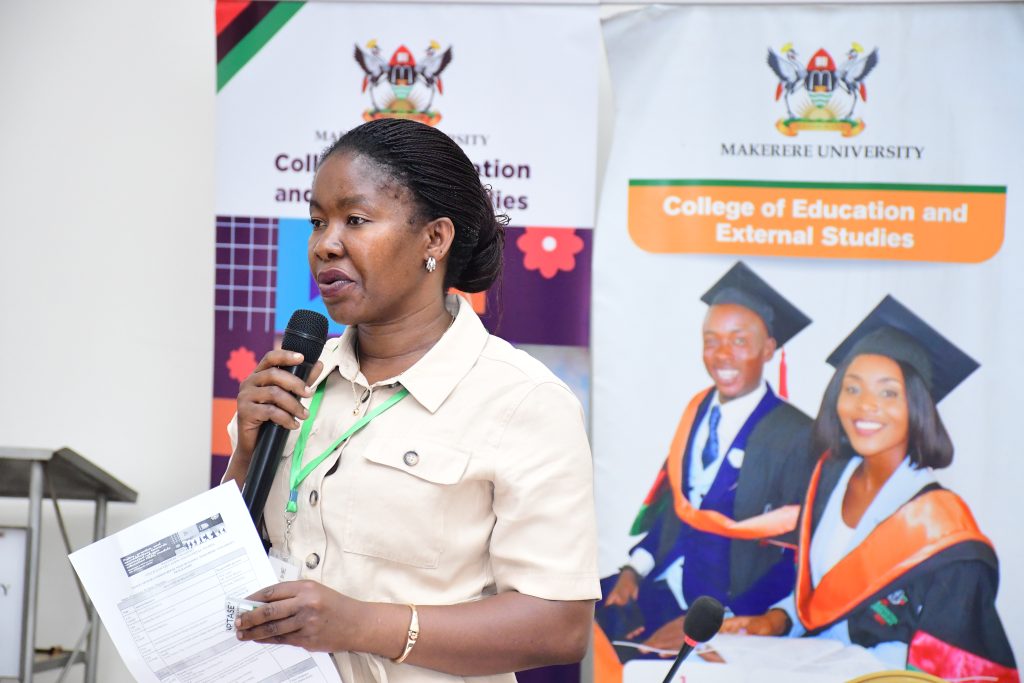
Dr. Rovincer Najjuma acknowledged the complexity of integrating digital technology into education, particularly in refugee contexts. “If technology is left unattended, it amplifies existing institutional issues,” she said. Dr. Najjuma underscored the necessity of coherent administrative procedures to support educational advancements.
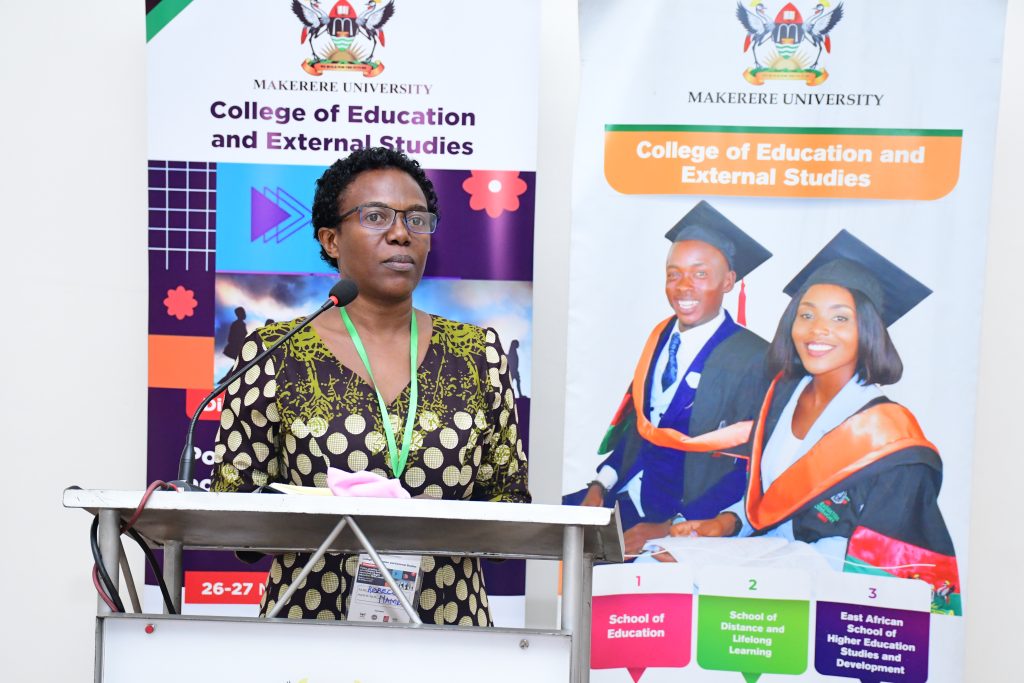
Dr. Rebecca Nambi emphasized the importance of adapting educational programs to meet the specific needs of refugee students. “It’s crucial to shift our perspective to help students with refugee status succeed in our systems rather than forcing them to conform to existing processes,” she stated.
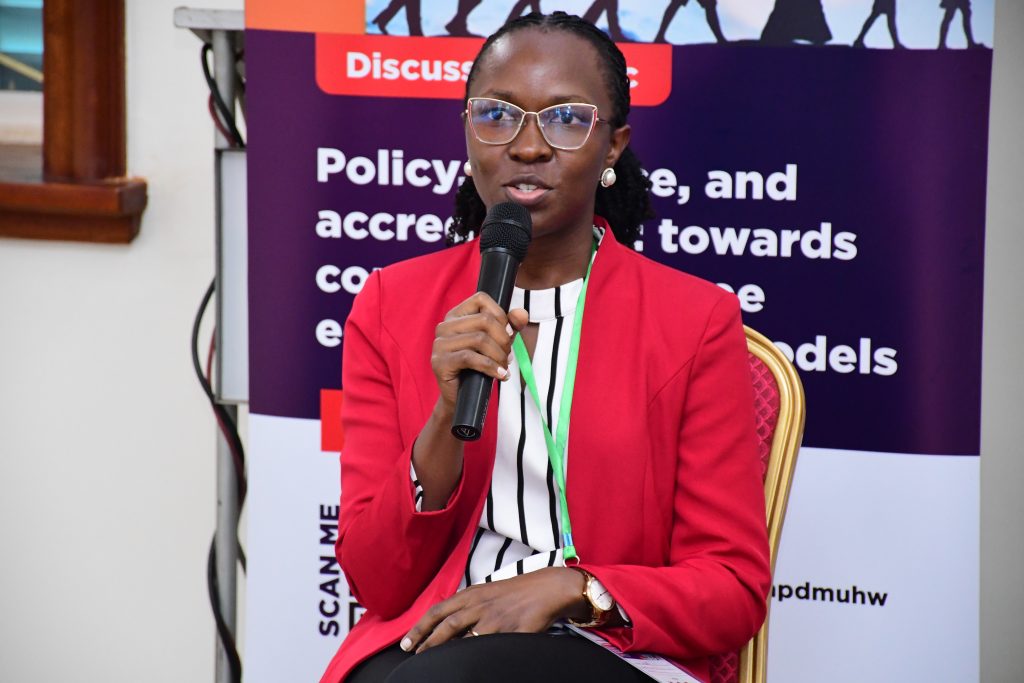
Ms. Sandra Nanyunja focused on the socio-emotional aspects of connected learning, noting that technology should complement, not replace interpersonal connections. Sharing insights on how marginalized students often feel isolated, Ms Nanyunja stressed the need for robust mentoring systems to keep learners engaged.
Dr. Najjuma reiterated that, their ultimate goal is to enhance individual capacities, whether for students or teachers, emphasizing the potential of connected learning to foster urgency. She urged participants to consider how technology can effectively bridge gaps in refugee education while respecting cultural differences and individual learning needs.
Conclusion:
The day’s discussions of the HEAC project highlighted vital approaches to enhance refugee education by integrating citizen education, promoting digital inclusion, and fostering community engagement. Participants emphasized the necessity for uniform perspectives across educational institutions to provide effective support for refugees. The testimonials from former refugee students shed light to the significant challenges they face, including barriers to technology access and financial constraints.
As stakeholders collaborate to establish inclusive educational environments, policies must prioritize both quality and accessibility. Ultimately, the commitment to recognizing refugee students as individuals, alongside tailored support systems, promises a transformative impact on their educational experiences.
